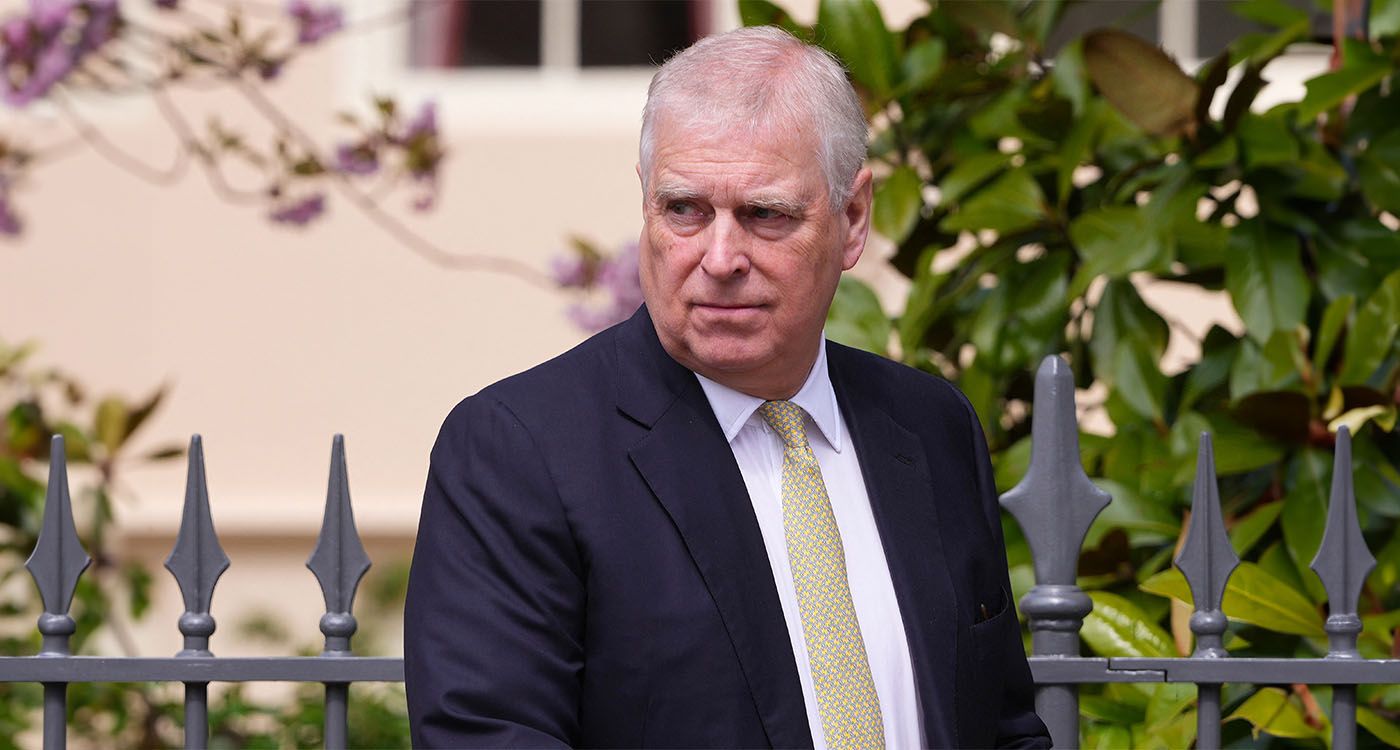- Home
- Middle East
- Prince Andrew: The Monarchy’s Lasting Burden

©Kirsty Wigglesworth / POOL / AFP
On Friday evening, Prince Andrew, long embroiled in scandal, announced he would relinquish all his royal titles and honors under pressure from his brother, King Charles III, and heir apparent Prince William. Accused of sexual abuse dating back to 2001, involving a 17-year-old and linked to his controversial friendship with billionaire Jeffrey Epstein, it took nearly a decade for the royal family to act. Now branded the “disgraced prince” by the press, the former Duke of York has been stripped of his dukedom and will be simply known as Prince Andrew. He has also been removed from the Order of the Garter, Britain’s oldest and most prestigious chivalric order.
In a statement released by Buckingham Palace on Friday, Prince Andrew said he had decided, in consultation with the King and his immediate and extended family, to relinquish all his royal titles and honors. He explained that “the ongoing allegations against me distract from the work of His Majesty and the royal family” and emphasized that he had chosen, “as always, to place my duty to my family and my country first.” The prince also categorically denied the accusations leveled against him.
His former wife, Sarah Ferguson, likewise implicated in financial scandals linked to Epstein, will lose her royal titles and will henceforth be solely known by her name. While Andrew formally retains his princely status under the Letters Patent issued by George V in 1917 and amended by Elizabeth II in 2012—which grants this status to the sons and daughters of sovereigns—the Duke of York title, though not officially revoked, will no longer be used. The king opted to avoid a parliamentary procedure, required for formal removal, to prevent additional media attention.
To understand Prince Andrew’s slow fall from grace, one must go back to the late 1990s, when Queen Elizabeth II’s younger son met American financier Jeffrey Epstein through Ghislaine Maxwell, a prominent figure in British high society. What began as an ill-advised friendship turned into scandal in 2001, when 17-year-old Virginia Giuffre accused the prince of sexual abuse within Epstein’s exploitation network. Although Andrew has consistently denied the allegations, his reputation suffered lasting damage. Epstein’s 2008 conviction for sexual offenses only deepened public suspicion, particularly as Andrew maintained contact with him after his release, including a widely publicized 2010 visit to Epstein’s New York residence.
In 2015, Giuffre’s civil complaint against Epstein explicitly named Andrew, reigniting attention at Buckingham Palace. His 2019 BBC Newsnight interview, marked by unconvincing denials and a flippant tone, further eroded public confidence. Under pressure from the Queen, Andrew withdrew from all official duties and relinquished roughly 230 patronages. In 2021, Giuffre filed a civil lawsuit against him in the US, which was settled out of court in 2022 through a financial agreement, without any admission of guilt. That same year, at his mother’s insistence, he also gave up the use of the title “His Royal Highness.”
Upon ascending the throne in September 2022, King Charles III adopted a firm stance toward his younger brother. Determined to distance the monarchy from scandal, he gradually stripped Andrew of his remaining privileges. By October 2022, Andrew had lost all public funding. A month later, he was deprived of police protection, as the king maintained that royals without official duties should not retain such benefits. In January 2023, access to his Buckingham Palace suite was revoked, formalizing his sidelining. By August 2024, The Telegraph reported that Charles III would terminate all security funding for Andrew, compelling him to cover protection for his Royal Lodge residence in Windsor. Together, these measures sent a clear message: the monarchy is modernized, committed to integrity and determined to distance itself from scandal.
The timing of the announcement was clearly calculated. Buckingham Palace seemed to anticipate a wave of explosive revelations. Over the weekend, the Sunday papers were delivered: The Mail on Sunday previously published unseen emails suggesting Andrew had been introduced to a second alleged victim, while the Sunday Telegraph reported that he allegedly asked Metropolitan Police officers to “investigate” his accuser, Virginia Giuffre, to discredit her testimony.
The storm shows no sign of abating. The Telegraph reported that Sarah Ferguson, Prince Andrew’s ex-wife, took their daughters, Princesses Beatrice and Eugenie, to visit Epstein in New York shortly after his 2009 release from prison. Leaked emails indicate she also sought a personal loan of $50,000 to $100,000 from Epstein to cover personal debts. Even more striking, sources close to the investigation claim Epstein financially supported Ferguson for nearly 15 years, creating a long-standing dependency on the disgraced billionaire. With Virginia Giuffre’s memoirs set for publication on Tuesday, this surge of revelations threatened to engulf the monarchy once again. By decisively acting now, Charles III appears to have sought to protect the Crown from a scandal impossible to contain.
According to sources close to the king, Prince William was the main force pressing for a hardline approach. Known for his firmness and commitment to a modern monarchy with high ethical and image standards, he has long opposed his uncle’s continued presence in royal life. In 2022, he reportedly persuaded Queen Elizabeth II to exclude Andrew from the Order of the Garter processions, even threatening to abstain if the decision was not enforced.
Sources cited by The Sunday Times indicate that William intends, once king, to permanently exclude Andrew and Ferguson from all royal family activities, both official and private. Andrew is not expected to attend William’s coronation. The future king has expressed concern that his uncle still legally retains his titles and the Royal Lodge, whose lease runs until 2078, as long as the rent is paid. To William, Andrew represents a persistent threat and a reputational risk to the monarchy, and he has made clear his intention to keep him entirely away from public and private events, cementing the marginalization of a prince now considered indefensible by the Crown.

Comments